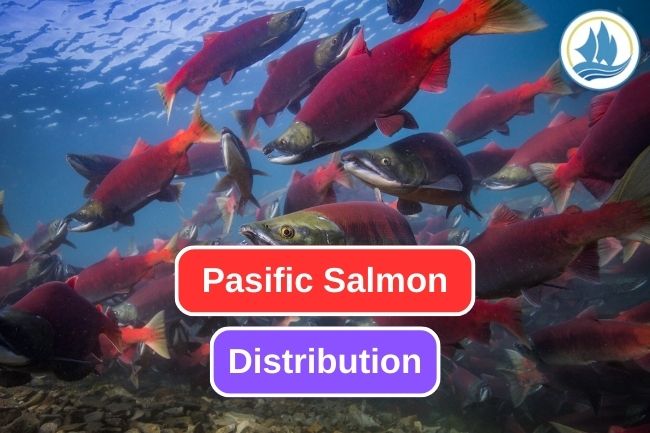Exploring the Distribution of North Pacific Salmon
By. Nevanda - 29 Aug 2023
kelolalaut.com - The North Pacific Ocean is home to a remarkable group of fish that have captured the imagination of scientists, ecologists, and nature enthusiasts alike – the North Pacific Salmon. Renowned for their epic migratory journeys, intricate life cycles, and essential ecological roles, these anadromous fish species are an integral part of the marine and freshwater ecosystems they inhabit. In this article, we delve into the captivating natural habitat of North Pacific salmon and exploring their distribution.
Read also: 12 Things to Noticed in RAS Maintenance
There are several species of Pacific salmon, including Chinook (also known as king), sockeye, coho, pink, and chum salmon. Pacific salmon are primarily found in the North Pacific Ocean and its tributary rivers along the coastlines of North America and Asia. Their range extends from California in the United States up to the Arctic Circle in Alaska and across to the eastern coast of Asia, including Russia and Japan.
The North Pacific salmon encompass several species, each with its unique characteristics and distribution. Chinook (king), sockeye, coho, pink, and chum salmon populate the waters of the North Pacific Ocean, ranging from the temperate coastal regions of California to the far reaches of Alaska and even stretching across the seas to eastern Asia, including Russia and Japan. Their distribution highlights the adaptability of these resilient fish to diverse oceanic conditions and temperature gradients.
Read also: 9 Health Benefits You Can Get from Mackerel
These salmon species are known for their iconic migration patterns. They hatch in freshwater streams, then migrate to the ocean to feed and grow. After spending years at sea, they return to their natal streams to spawn. Each species has a specific timing and preferred spawning habitat, which can include small coastal streams and larger river systems.
The North Pacific salmon's natural habitat is a testament to the intricate interplay between marine and freshwater environments. Their epic migrations, remarkable life cycles, and ecological importance highlight the delicate balance of nature. As we continue to study and appreciate the wonders of North Pacific salmon, it's imperative that we work collaboratively to protect and preserve these magnificent fish for generations to come.
.jpg)
The Impact of HACCP-Based Integrated Quality Management Programs on the Quality and Competitiveness of Fresh Demersal Fish Products
 and Employee Productivity on the Demersal Fish Processing Floor.jpg)

.jpg)




